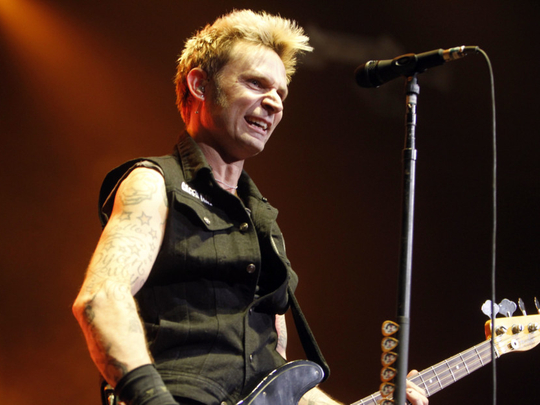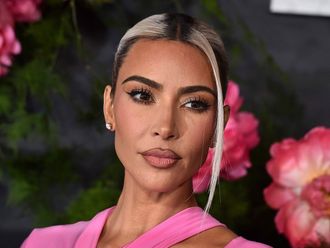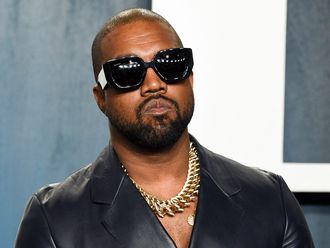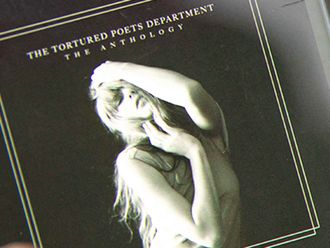
Green Day is back with Revolution Radio, and bassist Mike Dirnt couldn’t be happier to leave the past few years where they belong, behind him.
The founding member of the punk trio with boyhood friend Billie Joe Armstrong spent the year helping his wife, Brittney Cade, through breast cancer treatment. She documented the journey on Instagram, where she’s known as @batmansmom.
Revolution Radio, which debuted at No 1 on the Billboard charts, is the band’s first album since Armstrong headed to rehab for alcohol and prescription drug abuse after a guitar-smashing, profanity-infused meltdown onstage at the iHeartRadio music festival in 2012.
The band, including wild-eyed drummer Tre Cool, will launch their 2017 Revolution Radio North American Tour in March to promote the new album, received favourably by critics with their usual political and rebel themes — and a touch of the personal in lyrics from Armstrong. Bang Bang, a No 1 hit on the alternative charts, was inspired by the rise of gun violence in the US and told partially from the point of view of a mass shooter.
The 46-year-old Dirnt, the father of three, has also stayed busy with his two diners in his native Northern California and with Oakland Coffee Works, a nearly three-year-old company he co-owns with Armstrong that’s focused on selling sustainably grown organic beans.
A conversation with Mike Dirnt.
So you’re touring for the first time in quite a while. How does that feel?
Yeah, it’s really great. You know, everybody’s healthy and firing on all cylinders. The album is doing really great everywhere. It’s crazy because when I’m onstage now I think I have more energy than I ever have. I think it’s taking care of yourself. I work out before every show, you know. Push-ups, prayers and vitamins.
Does it feel like a long time between albums? It’s been four years.
Um, yes, but it was a necessary break. We had some health issues to deal with, you know. Billie had to deal with his stuff and my wife went through a really serious bout of breast cancer. She’s doing great. She’s in full remission after chemotherapy and nine surgeries. It was nice to have that time and be able to focus on her recovery.
So tell me about inspirations for the new album?
You always want to spend some time at home so you can pull from actual life and have genuine things to write about. As we got closer to the end of the writing process, one of the main themes running through the record, I feel, is actually gratitude. But we’re also always going to call things as we see them. We write the music together, but lyrically Billie’s got a really strong perspective. I write a line here, there or wherever.
Musically, do you still feel connected to your roots? You and Billie were 14 when you started your first band.
Me and Billie met when we were 10 years old. Some of our first conversations were about songwriting. There wasn’t a whole lot to aspire to when we were teenagers so music was our outlet and our passion. If you have that you don’t let go of it. It’s something beautiful. I always had music to look forward to.
Your biological mum was a heroin addict. You were adopted and your parents divorced when you were seven. At 15, you were renting a room from Billie’s mum outside of Oakland. Is adoption something you feel passionate about as an advocate?
I dunno. Not really. My mother who adopted me is Chippewa Indian, and she gave me a lot of love. It wasn’t always easy but I always had friends who had it harder than me. I finally met my biological mother a month before she passed away a few years ago. She had dementia and COPD (chronic obstructive pulmonary disease), so it didn’t pan out to much more than a hug, sharing a cup of coffee and a cigarette.
Everybody comes from somewhere, is the way I look at it. There’s a million ways to get to a good place. Some people do it by trying to not be their parents. Other people do it by trying to be their parents, and other people do it by figuring out who they are along the way.












